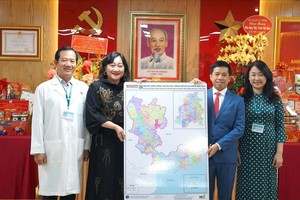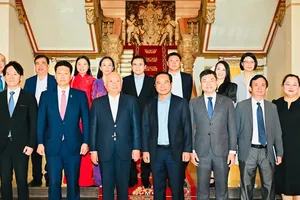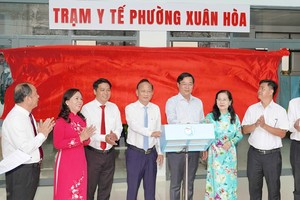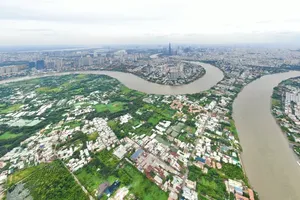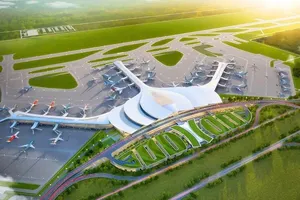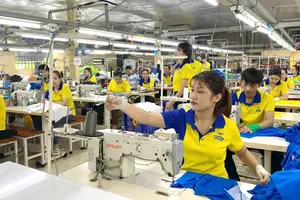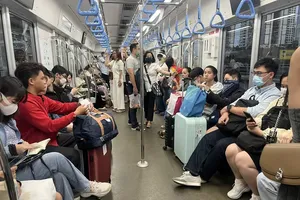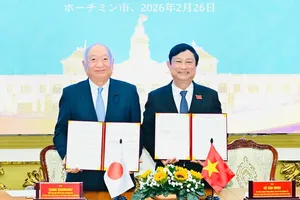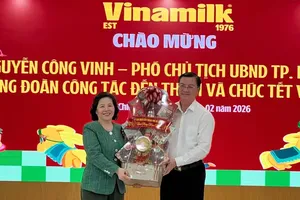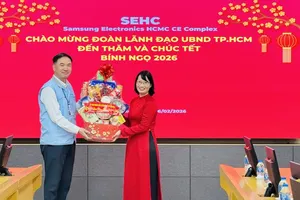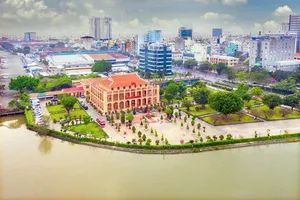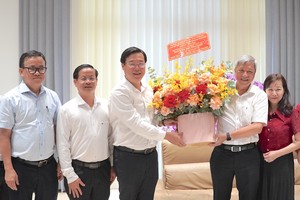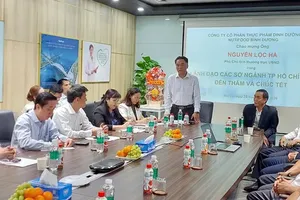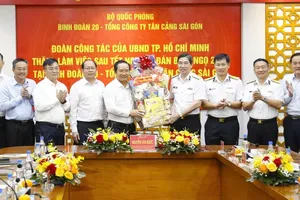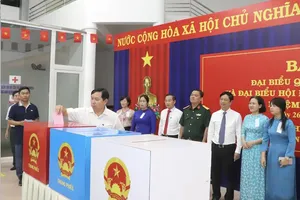
Reporting at a meeting yesterday, HCMC Department of Industry and Trade said that export turnover by HCMC businesses increased 15.1 percent through border gates nationwide and 12 percent excluding crude oil through border gates in HCMC.
The industry and trade fields have gained the added value of over VND356 trillion ($15.68 billion) accounting for 33.62 percent of the city’s Gross Regional Domestic Product (GRDP).
Explaining reasons for the outstanding growth, director of HCMC Department of Industry and Trade Pham Thanh Kien said that the economic structure change has created outstanding growth rates in four key industries which IPI growth being 1.83 times higher than the average growth rate of the entire industry.
Revenue contribution ratio by modern retail models to the total retail sales of goods and services hiked from 31.8 percent last year to nearly 32 percent this year thanks to the development of modern trade infrastructure, with the increase of 18 supermarkets, three commerce centers and 218 convenient stores, together with online retail form.
HCMC has issued many business assistance policies. Specifically, those investing in industrial production and support industry can receive VND200 billion ($8.81 milion) in loan a project with low interest rate for over seven years.
In 2017, HCMC has organized 35 activities to assist businesses to uphold and expand their domestic market through connectivity programs with international retail groups in the city.
In addition, the city has intensified supporting businesses to broaden their market shares to neighboring provinces and abroad and maintained measures on market stabilization, supply and demand connectivity in combination with distribution channel development.
Another factor contributing to the city’s economic growth is the fast increase in the number of newly established companies, estimated to reach 8.45 percent a year with 328,8217 businesses. The city has continued supporting business households to transfer into businesses.
According to businesses at the meeting, most enterprises in HCMC are small and super small scaled, their ability to access the Government’s preferential capital sources is limited.
Support industry has showed some changes but they are not strong enough and have yet to meet material supply demand of domestic firms.
In fields of garment and textile and footwear, costs from social, health and unemployment insurance payment are still high reaching 32.5 percent. That has affected internal force of businesses and workers.
Mr. Pham Thanh Kien said that in the upcoming time, the Industry and Trade Department will intensify trade promotion and improve the operation’s efficiency in key markets especially those where HCMC has seen trade deficit top $1 billion such as China, Singapore, Taiwan, Thailand and South Korea.
Of these, the agency will give priority to carrying out measures to help businesses take advantage of free trade agreements (FTAs), supplement technical barriers and further develop support industry to minimize negative impacts from FTAs.
Economic experts said that HCMC should right determine their export advantages to have suitable trade promotion solutions for major export items, build policies to increase the export ratio of products with high added value such as electronics, computers and software.
